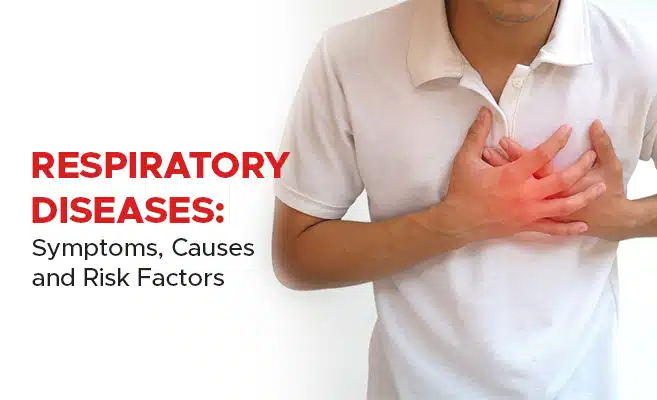Respiratory diseases are a significant cause of morbidity and mortality worldwide, affecting people of all ages. They can range from mild, self-limiting conditions to severe, life-threatening illnesses.
Common Respiratory Diseases
- Acute Respiratory Infections (ARIs): These include the common cold, influenza, and pneumonia. ARIs are often caused by viruses or bacteria and can lead to complications, especially in young children, the elderly, and individuals with underlying health conditions.
- Chronic Obstructive Pulmonary Disease (COPD): This is a progressive lung disease characterized by airflow obstruction, often caused by smoking. Symptoms include shortness of breath, coughing, and wheezing.
- Asthma: A chronic inflammatory disease of the airways that causes wheezing, coughing, chest tightness, and shortness of breath. Triggers for asthma attacks can include allergens, irritants, and exercise.
- Lung Cancer: A leading cause of cancer death worldwide. It can be caused by smoking, exposure to secondhand smoke, radon, or other environmental factors.
- Tuberculosis (TB): A contagious bacterial infection that primarily affects the lungs. TB is a major global health problem, particularly in developing countries.
- Cystic Fibrosis: A genetic disease that causes thick, sticky mucus to build up in the lungs, leading to respiratory infections and other complications.
Risk Factors
- Smoking: Smoking is a major risk factor for many respiratory diseases, including COPD, lung cancer, and heart disease.
- Air pollution: Exposure to air pollution, both indoors and outdoors, can contribute to respiratory problems.
- Allergies: People with allergies may be more susceptible to asthma and other respiratory conditions.
- Occupational exposures: Certain occupations, such as mining, construction, and farming, can expose individuals to harmful substances that can damage the lungs.
- Genetics: Some respiratory diseases, such as cystic fibrosis, are inherited.
Prevention and Treatment
- Vaccines: Vaccines are available for some respiratory diseases, such as influenza and pneumococcal pneumonia.
- Smoking cessation: Quitting smoking is one of the most effective ways to prevent respiratory diseases.
- Air quality improvement: Reducing air pollution can help protect lung health.
- Treatment: Treatment for respiratory diseases varies depending on the specific condition and may include medications, therapy, or surgery.
Respiratory diseases continue to be a major public health challenge. By understanding the risk factors, seeking early diagnosis, and adopting preventive measures, individuals can help protect their lung health and reduce the burden of these diseases.
